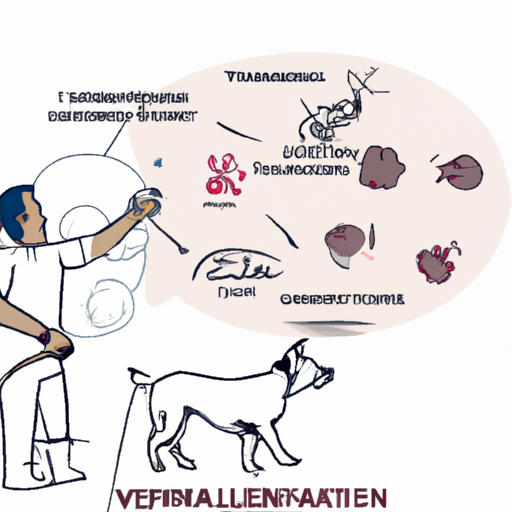As a loving caregiver to your pup, it’s essential to understand the health challenges they might face. One of those challenges is mast cell tumors in dogs. But what causes these tumors? You’re about to find out.
Understanding Mast Cell Tumors
Mast cell tumors (MCTs) are a form of skin cancer in dogs. They develop from mast cells, which are part of your dog’s immune system. While mast cells play a vital role in fighting off pathogens, they can become cancerous under certain conditions.
Potential Causes of Mast Cell Tumors
The exact cause of mast cell tumors in dogs is still under investigation. However, several factors may contribute to their development:
- Genetics: Certain breeds, like Boxers and Bull Terriers, are more prone to developing MCTs, pointing to a possible genetic component.
- Chronic Inflammation: Continuous inflammation can lead to the development of MCTs.
- Environmental Factors: Prolonged exposure to certain environmental elements like pesticides or radiation might increase the risk.
Symptoms of Mast Cell Tumors
As a caregiver, you should be aware of the signs that might indicate your dog has a mast cell tumor:
- Swelling or lump on the skin
- Redness or ulceration on the skin
- Loss of appetite and weight loss
Diagnosis and Treatment
Diagnosis is typically made through a biopsy of the affected tissue. If your vet confirms the presence of MCTs, treatment options might include:
- Surgery
- Chemotherapy
- Radiation therapy
The choice of treatment depends on the tumor’s size, location, and grade.
| Treatment Options | Applicable Conditions |
|---|---|
| Surgery | Small, localized tumors |
| Chemotherapy | Spread or multiple tumors |
| Radiation therapy | Inoperable tumors |
Prevention and Care
While there’s no surefire way to prevent MCTs, you can reduce your dog’s risk.
- Regular vet check-ups
- Minimize exposure to harmful environmental factors
- Keep your dog’s skin healthy to avoid chronic inflammation
Frequently Asked Questions
What breeds are most at risk?
Boxers, Bull Terriers, Boston Terriers, and Labradors are more prone to MCTs.
Can mast cell tumors be cured?
Yes, if detected early and treated promptly, many dogs can recover fully.
How can I check my dog for mast cell tumors?
Regularly check your dog’s skin for any unusual lumps or bumps, and report them to your vet immediately.
How are mast cell tumors treated?
Treatment options include surgery, chemotherapy, and radiation therapy.
Is there a way to prevent mast cell tumors?
While there’s no guaranteed prevention, regular check-ups, minimizing harmful environmental exposure, and maintaining healthy skin can reduce the risk.
Remember, knowledge is power, and understanding what causes mast cell tumors in dogs is the first step in prevention and early detection.



